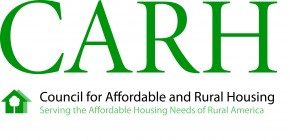- November 2022
- October 2022
- September 2022
- August 2022
- July 2022
- June 2022
- May 2022
- April 2022
- March 2022
- February 2022
- January 2022
- December 2021
- November 2021
- October 2021
- September 2021
- August 2021
- July 2021
- June 2021
- May 2021
- April 2021
- March 2021
- February 2021
- January 2021
- December 2020
- November 2020
- October 2020
- September 2020
- August 2020
- July 2020
- June 2020
- May 2020
- April 2020
- March 2020
- February 2020
- January 2020
- December 2019
- November 2019
- October 2019
- September 2019
- August 2019
- July 2019
- June 2019
- May 2019
- April 2019
- March 2019
- February 2019
- January 2019
- December 2018
- November 2018
- October 2018
- September 2018
- August 2018
- July 2018
- June 2018
- May 2018
- April 2018
- March 2018
- February 2018
- January 2018
- December 2017
- November 2017
- October 2017
- September 2017
- August 2017
- July 2017
- June 2017
- May 2017
- April 2017
- March 2017
- February 2017
- January 2017
- December 2016
- November 2016
- October 2016
- September 2016
- August 2016
- July 2016
- June 2016
- May 2016
- April 2016
- March 2016
- February 2016
- January 2016
- December 2015
- November 2015
- October 2015
- September 2015
- August 2015
- July 2015
- June 2015
- May 2015
- April 2015
- March 2015
- February 2015
- January 2015
- December 2014
- November 2014
- October 2014
- September 2014
- August 2014
- July 2014
- June 2014
- May 2014
- April 2014
- March 2014
- February 2014
- January 2014
Proposed Administration Rescission Package Takes $40 Million from Rural Development Rental Assistance
CARH’S BROADCAST EMAIL – Legislative Update
May 9, 2018
Yesterday, May 8, 2018, the Trump Administration released its $15 billion Proposed Rescission of Budgetary Resources, which includes taking back $40 million of Rural Development’s (RD) Section 521 Rental Assistance (RA) that was appropriated for Fiscal Year (FY) 2018. We are working hard to oppose the inclusion of this RA rescission and we urge you to contact your members of Congress as soon as possible and ask that RA be removed from the Rescission package.
Rescission is the term for the process of pulling back funds after the Congress has voted to appropriate funds and the president has signed the appropriations into law. The Congressional Budget and Impoundment Control Act of 1974 was passed into law to address certain rescission practices under President Nixon and has been used sporadically since then. Periodically, there are rescission packages that are program specific and relatively small in scope, basically as a way of adjusting program balances. Only on rare occasions have there been broad-based rescission packages such as the current proposal.
FY 2018 funding levels were set in the Consolidated Appropriations Act, as we noted in our March 23, 2018, Broadcast Email. Under the Consolidated Appropriations Act, the Section 521 RA program was funded at a level of $1.345 billion. As we discussed in that Broadcast Email, this was a reduction in funding from the FY 2017 level of $1.405 billion, but $40 million of FY 2017 monies were carried over into FY 2018 to fund contracts that were to be renewed during the early months of the new fiscal year. This carryover practice was to continue in FY 2018, with the ability of the agency to carryover $40 million. However, now it appears that the Administration would eliminate this $40 million carryover.
This carryover process was used to offset some of the problems that occurred from funding shortages and timing misalignments in FY 2015 to FY 2016. As CARH members will recall, the Federal Government ran short of Section 521 RA funding in FY2015 and FY2016. This problem arose and grew to a more than $200 million problem for two reasons: first, there were shortcomings in the RD forecasting tool; and second, the failure to have enough funding when needed. The first issue has been addressed and seems to be resolved with a new RD forecasting process. The second issue was addressed through a one-time appropriation increase and the ability to clearly carryover enough funds, determined by USDA to be $40 million, to renew RA contracts expiring in the first quarter of the following fiscal year. Without this carryover there is every reason to expect this funding and timing gap will re-emerge in September/October at the end of FY 2018 and start of FY 2019.
It is important that CARH members contact your members of Congress and ask them to oppose the recession of RA funds. It is even more if you have contracts that are renewed at the beginning of the new fiscal year. It’s important to tell your Congressional member about the impact on residents who live in your properties, as well as your businesses. While in the short-term the crisis that occurred in previous years has not re-occurred as a wide spread problem, this rescission would remove part of the solution put in place in FY 2016. If your members of Congress serve on either the House or Senate Appropriations Committees it is vital that you contact them and ask them to oppose the recession.
Click here for a list of Senate Appropriations Committee Members
Click here for a list of House Appropriations Committee Members.
Click here to contact your Senators.
Click here to contact your Representatives.
Please keep the national CARH office appraised of any meetings and results of those meetings. If you have any questions or need any additional information, please do not hesitate to contact CARH at 703-837-9001 or carh@carh.org.





